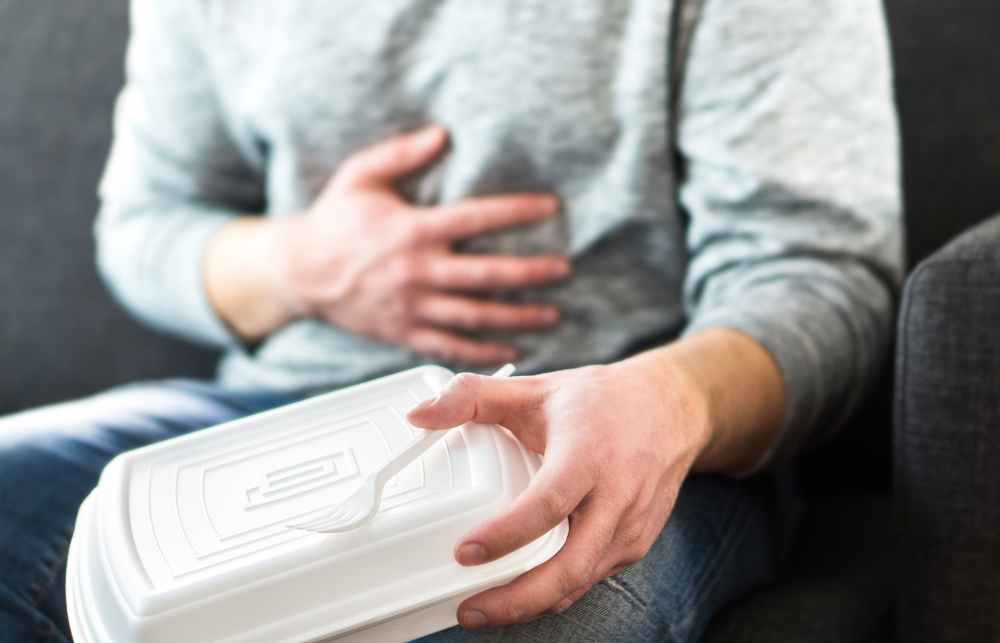Is Mucus in Stool a Red Flag? Discover the Hidden Signs!

TABLE OF CONTENTS
Trace amounts of mucus in stool is completely normal. However, if the amount is large, it may signify conditions such as IBD (Inflammatory Bowel Disease) or an infection. More insights about the causes of mucus in the stool and the signs that should be taken seriously are shared in the below sections!
What is Mucus in Stool?
The inner lining of your large intestines produces a slimy or sticky substance called mucus. This substance not only lubricates the digestive tract but also makes the passage of stool smooth.
During bowel movements, the mucus gets released along with the stool. As its colour is mostly clear, you don’t notice it. However, certain infections may produce the mucus in large quantities and you may also notice pus or blood in it. Possible indications of bloody mucus in the stool are discussed below.
Some worrying signs include:
Visible blood stains in the mucus
Stomach pain or constipation followed by bloody mucus
Mucus released in larger amounts
Sudden changes in the colour, consistency, or occurrence of the stool
Common Causes of Mucus in Stool
Following are some of the common reasons for mucus in stool:
Intestinal Irritation
Your intestines may produce more mucus if your diet lacks fibre or hydration. Certain foods may cause irritation in the intestines which may force them to produce extra mucus as a defense mechanism.
There is nothing to worry if the irritation is minor and goes on its own. However, if it gets severe and you feel pain while passing stool, consult a doctor immediately!
IBD
IBD or Inflammatory Bowel Disease is a condition that causes chronic inflammation in the digestive tract. The symptoms of this condition include diarrhoea, excess mucus in the stool, and abdominal pain.
Crohn's disease, a form of IBD, inflames the entire digestive tract from mouth to anus. As a response, the mucus layer becomes thicker which may make the passage of stool difficult. During flare-ups, the intestines produce less mucus which leads to complications like abdominal cramps, rectal bleeding, constipation, and more!
UC
UC or Ulcerative Colitis is also a form of IBD. The immune system of your body reacts to cause formation of ulcers in the large intestines. During flare-ups these ulcers bleed and you start noticing the presence of bloody mucus in the stool!
Along with blood, you may also suffer from stomach cramps, severe pain, and bowel movements that are loose and urgent.
Infections
Infections due to bacteria, viruses, or parasite strains in food or water can also lead to intestine inflammation. The inflammation produces excess mucus which can be visible while passing the stool. Food poisoning is one of the most common examples of such infections resulting in the presence of mucus in the stool.
Food Allergies
Some people are allergic to milk, gluten, or any other dietary ingredient. Food allergies trigger a reaction which results in inflamed intestines.
These allergies are one of the most common causes of stool with mucus. Once your digestive tract heals on its own or after taking some medicine, the amount of mucus in the stool will be considerably reduced.
Piles
Cases of piles or haemorrhoids are being reported on a large scale these days. The sedentary lifestyle and poor diet choices lead them to this condition. Irrespective of the reason, this condition may trigger irritation and excess mucus release while passing stool. The excess pressure exerted during passage of stools may also induce bloody mucus in the stool.
Proctitis
Proctitis is a condition that causes inflammation in your rectum’s inner lining. Apart from occurrence of pus in the mucus, this condition also leads to some other symptoms including:
Urgent need to pass faeces
Pain in the rectum
Bleeding
Constipation
Diarrhoea
Bloated rectum
Colorectal Cancer
The term colorectal cancer refers to cancerous growth in the rectum or colon. Those diagnosed with this condition often see bloody mucus in their stool. Along with these signs, colorectal cancer also results in sudden weight loss.
So, if you experience any changes in the stool along with a sudden weight loss, you must contact a doctor immediately, especially if there is a history of colorectal cancer in your family.
When Should You Be Concerned?
Nothing is serious if the reason for the mucus in the stool does not follow-up with other symptoms. Also, don’t worry much if the mucus goes away on its own after a couple of days and does not cause warning signs such as abdominal pain, cramping, diarrhoea, or any other complications.
For instance, if you spot bloody mucus in the stool and experience symptoms such as fatigue, weight loss, vomiting, etc. report it to the doctor immediately. If there are any changes in the bowel movement, you must discuss it with your doctor.
There is usually no reason to worry if the amount of mucus is small. However, if the mucus is present in substantial amounts, it would be better to get your doubts cleared by a doctor.
Treatment & Home Remedies for Mucus In Stool
Here are some home remedies that you can follow if the mucus does not accompany with any worrisome symptoms:
Increase Fibre Intake
Lack of fibre in your diet can force your digestive tract to produce more mucus. Including a fibrous diet such as fruits, nuts, and seeds can normalise your bowel movement and minimise the occurrence of mucus in the stool.
Also, avoid spicy, oily, and other foods that you might be allergic to. Maintaining a healthy diet and drinking plenty of water will do a lot of good to your health and minimise the cause of mucus in stool!
Take Medications Wisely
Conditions such as IBD or Crohn’s disease require you to take long-term medications. These medications may include antibiotics, anti-inflammatory drugs, and antidiarrheals. Take these medications regularly and follow the lifestyle changes suggested by the doctor.
The mucus and other symptoms associated with the specific conditions will eventually subside on your own. However, you must remember the exact causes of mucus in stool to avoid them in the future.
Opt For Surgery Only if Required
In the worst case scenario, the doctor will suggest that you undergo a surgery. Surgery will only be required for piles, polyps, colorectal cancer, and other severe cases in which medications will not produce immediate or desired results.
Home Remedies
Following certain home remedies can also ease your discomfort and symptoms naturally. The first thing is restoring the healthy gut bacteria, especially if the doctor has prescribed antibiotics.
Probiotic foods like yoghurt, chicken, cheese, etc. will improve your gut health and minimise the irritation to some extent. Drinking herbal teas containing peppermint, chamomile, or rosemary extracts may also soothe the inflammation.
Use a hot compress or take a hot shower to get relief from the discomfort or pain associated with related symptoms such as constipation, diarrhoea, and bloody mucus in the stool.
Mediate or try relaxation methods like deep breathing to alleviate the stress that may worsen or aggravate the symptoms. Finally, drink enough water to keep your bowel movement smooth!
How to Prevent Mucus in Stool?
Eat a fibre-rich diet and avoid overeating spicy or oily food items. Lack of hydration may also be the cause of mucus in the stool. Make some lifestyle changes such as stop sitting in one place for a long time.
Indulge in some physical activities to keep your digestive process up and running. These small changes will reduce the mucus production and also improve your health and overall immunity.
Conclusion
We hope you have grasped the reasons for mucus in the stool. Keeping certain things such as healthy food, hygiene, and lifestyle habits in place will certainly help in the long run. If there is an emergency, book an appointment with a gastroenterologist at your nearest super specialty hospital!
FAQs
What causes mucoid stool?
Inflammatory bowel conditions, food allergies, and digestive tract infections cause mucoid stool i.e. excessive mucus in the stool.
How to treat mucoid stool at home?
If the cause of mucus in the stool is not worrisome, drinking enough fluids, and eating a fibrous diet must help. Also, drink herbal teas and avoid spicy and greasy food items while undergoing a treatment for mucoid stool.
Which food items can trigger mucus in stool?
Oily, fried, and spicy food items may irritate your digestive tract causing inflammation and mucoid stool.
Which colour mucus is seen due to IBS?
Irritable bowel syndrome or IBS or gastrointestinal disorder leads to mucus of white or clear colour in large amounts in the stool.
When to worry about mucus in the stool?
If the amount of mucus is increasing with time, you must consult a healthcare professional immediately. Also, if you detect mucus regularly while passing stool, reporting it to a doctor would be a wise thing to do.






